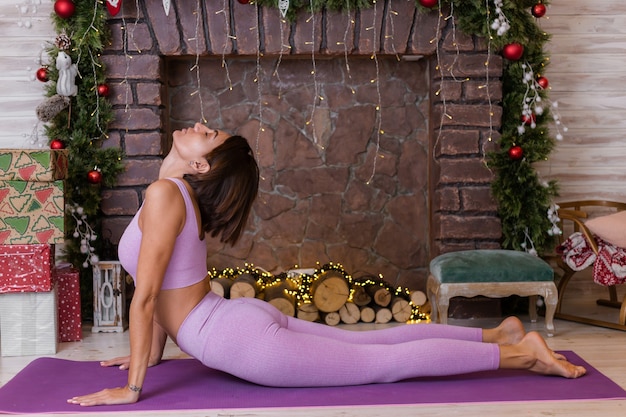
Yoga isn’t just about flexible limbs; it can boost memory, heart, and bone health too, says Anna Magee.
In the UK, we’re spending a whopping £790 million each year on yoga classes and mats. While there are increasingly unusual yoga trends like rage yoga or doing poses with dogs, scientific research continues to confirm yoga’s real benefits.
At UCLA, researchers discovered a three-month yoga and meditation course was more effective than memory exercises for reducing age-related brain decline. Another study found it could improve sleep in breast cancer survivors.
When Lucy Edge, 53, experienced severe depression, she chose yoga over prescribed anti-depressants. Taking a six-month career break to learn yoga in India, she returned happier and more content. Now, she has written three books on yoga and created Yoga Meds, highlighting over 300 studies on yoga’s benefits for various conditions.
If you’re looking to enhance your memory beyond crossword puzzles and Sudoku, consider yoga. UCLA’s study on adults over 55 found that yoga improved spatial and visual memory, reduced depression and anxiety, and increased resilience to stress. The participants did one hour of Kundalini yoga weekly and practiced 20 minutes of meditation daily, involving chanting and hand movements.
Yoga isn’t just good for the mind—it’s beneficial for the heart too. A 2014 review showed yoga could lower heart disease risk as much as brisk walking. Stress, a major heart disease risk factor, can be significantly reduced through yoga. Dr. Mike Knapton from the British Heart Foundation notes that yoga helps with anxiety, stress, and depression, improving blood pressure, cholesterol, and weight, all contributing to heart health.
Charlotte Watts, a yoga teacher and nutritional therapist, has devised a series of gentle yoga poses to reduce stress, perfect for beginners. Anna Ashby from Triyoga Studios recommends Restorative yoga for stress reduction, involving poses supported by bolsters and cushions held for up to 12 minutes.
Yoga also has notable benefits for physical health, including reducing back pain and incontinence. Sarah Shone, a musculoskeletal physiotherapist, included yoga in rehabilitation programs for back pain, with 87% of participants reporting pain reduction. National guidelines also support yoga for lower back pain.
For beginners, Shone recommends gentle styles like Hatha or Iyengar yoga and consulting a doctor for subsidized yoga programs if you have specific health issues.
Having the right yoga mat can enhance your practice. Consider where you’ll keep it, how often you’ll transport it, and the thickness you need for joint protection. Healthista recommends the Elephant Cork Yoga mat from Valka Yoga, eco-friendly, durable, and suitable for both display and practice.
Cork mats are ideal for those who sweat as they become grippier when wet and are naturally antimicrobial. Each Valka mat comes with a carry strap and a 15-day money-back guarantee, plus a one-year replacement warranty. Valka’s matching yoga block can help with difficult poses and is stable and grippy.
Whether you’re flexible or not, yoga can help. Try:
– Yin or Restorative yoga for a relaxed, supportive practice.
– Vinyasa Flow for an energetic, breath-linked sequence.
– Iyengar for precise, alignment-focused poses using props.
– Anusara for a modern, music-filled practice.
– Yoga Therapy for injury or illness recovery.
Remember, good props make a difference, so investing in quality gear like a supportive mat and block can enhance your practice.